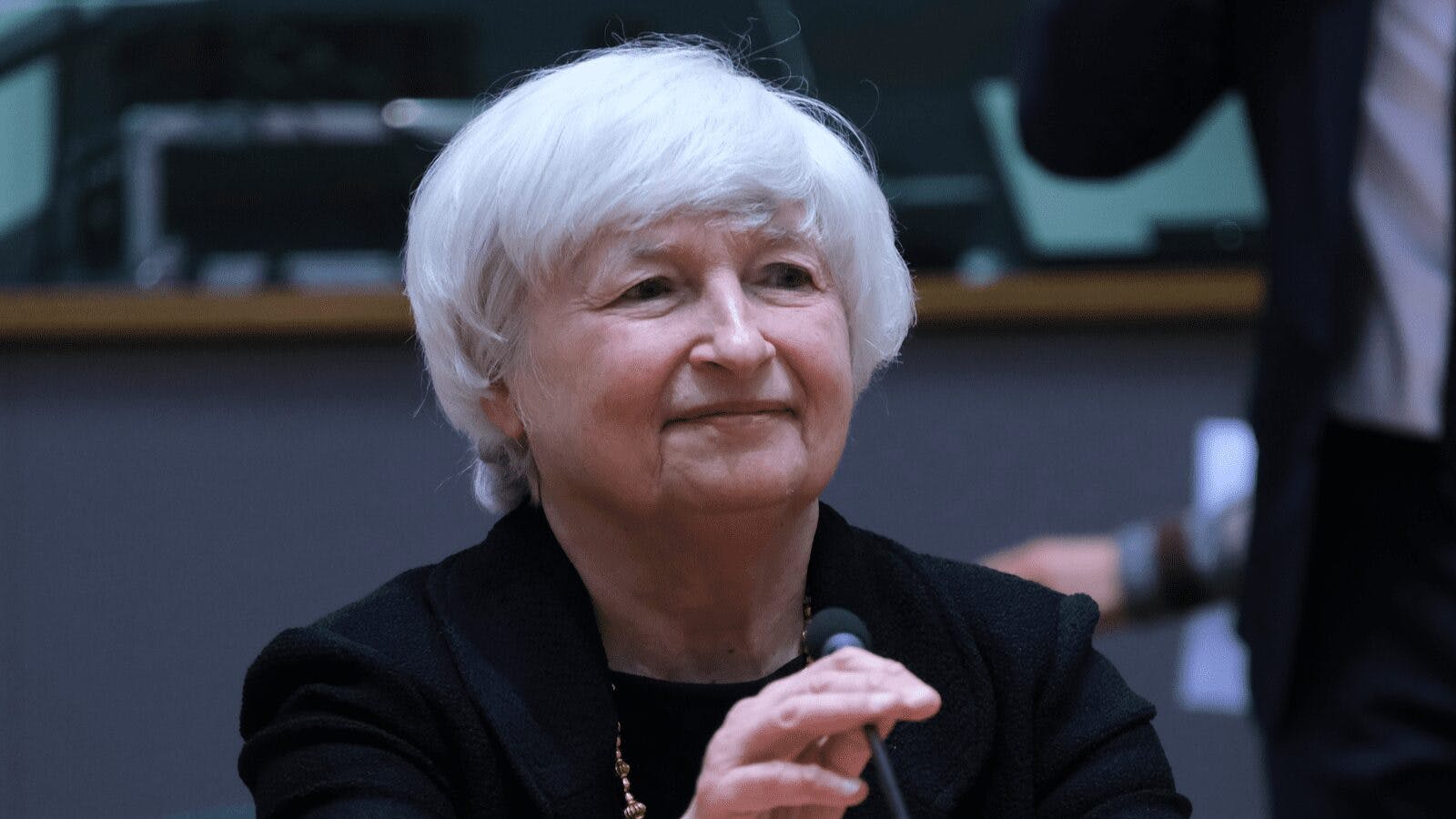Crypto Could ‘Pose Risks to US Stability’ – Fed Adviser
The regulator is particularly concerned about stablecoins, volatility and crypto token classification

Secretary of the Treasury Janet Yellen | Source: Shutterstock
- Regulatory heads met to share thoughts on new crypto risk report
- Chairs agree that joint cooperation between agencies is a must
A US financial regulator chaired by Treasury Secretary Janet Yellen determined Monday that cryptocurrencies could “pose risks to US stability, under certain conditions,” per one participant.
The Financial Stability Oversight Council (FSOC) met Monday to discuss its new report on digital assets, designed as a framework for regulators and financial rulemakers.
Jonathan Rose, an economist and adviser to the Federal Reserve Bank of Chicago, warned of potential systemic risks.
“Those conditions are first, if their interconnections with the traditional financial system or their overall scale were to grow,” Rose said. “And second, if that growth were to occur without adherence to or being paired with appropriate regulation, including the enforcement of the existing regulatory structure.”
The FSOC — which includes voting members Federal Reserve Chair Jerome Powell and SEC Chair Gary Gensler — came to be in 2010, in the aftermath of the last financial crisis, and is tasked with identifying and protecting against outsized risks to the rails of traditional finance.
The FSOC’s findings detail the “sources of acute instability arising from speculation driven crypto asset prices, interconnections within the crypto asset ecosystem, operational vulnerabilities, funding mismatches and run risk,” according to Rose.
The FSOC is particularly concerned about stablecoins, volatility and how crypto tokens writ large should be classified, Rose added.
In prepared remarks, Gensler slammed Bitcoin’s anonymous creator, Satoshi Nakamoto, for not having “faith in the financial sector overseen by folks like us, sitting around this table.”
Gensler again emphasized the need for the SEC and related agencies to work in tandem with Congress to establish a stringent regulatory framework for the nascent sector, a callback to earlier comments from the SEC chief.
The report suggests 10 steps for lessening the risk cryptoassets purportedly pose, including passing legislation to regulate stablecoins.
The group also said that whatever regulatory body ends up overseeing stablecoins needs to have the authority to monitor and control interoperability between stablecoins, in an effort to prevent monopolies overseen by a handful of large issuers.
Get the news in your inbox. Explore Blockworks newsletters:
- The Breakdown: Decoding crypto and the markets. Daily.
- 0xResearch: Alpha in your inbox. Think like an analyst.






